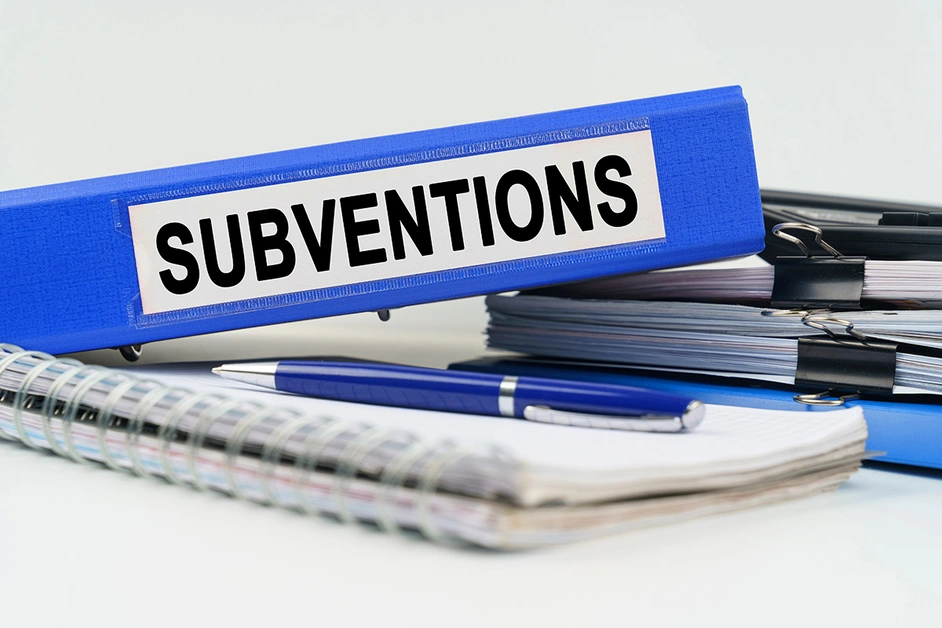What is a Subvention Scheme? How it is Used?

In real estate, many people use subvention schemes, and some try to avoid them. Let's know the importance of the subvention scheme in detail.
A subvention scheme is a tripartite agreement between the developer, the bank financing the home loan, and the buyer of a unit in a project still under development. A buyer must put down 5–20% of the purchase price under this agreement, and the remaining money is serviced by the banks directly to the developer in instalments.
In exchange, the developer covers the interest charges incurred on the outstanding balance until the project is finished. Only once they have full ownership of the house.
Meanwhile, the bank pays the developer directly to hurry the construction process. Let's find out more information about the subvention scheme.
Why Do Homebuyers Choose the Subvention Scheme?
The subvention scheme is quite popular among renters. The buyers do not have to pay the loan interest before taking possession of the house because this scheme allows them to commit only a portion of the overall obligation.
They have enough time to save money while the project is still ongoing. After the subsidy period, they must make the cheaper EMI payment for any remaining debt.
If the project is delayed, the developer suffers a loss in the subvention scheme because they must keep paying the bank interest under the contract. It inevitably causes a delay in the buyer's remaining balance.
As a result, the construction process proceeds without incident with the bank's loan amount, and the "buy now, pay later" phrase holds.
Advantages of the Subvention Scheme
Homebuyers must only pay interest upfront once the project is finished. Secondly, since the terms require the builders in the agreement to pay interest up to completion, the buyers are unaffected by the project's delay.
Additionally, it trains the developers' discipline so that they will complete the task on time and keep their word.
The subvention scheme benefits the sellers. Banks must adhere to strict guidelines when issuing loans to developers. These solutions assist builders in taking advantage of the opportunity and gaining access to 80% of the funds at low interest. They also enhance demand for the plot and increase the likelihood of a sale.
Disadvantages of the Subvention Scheme
A subvention scheme has a cost, just like any other plan. Some sellers include a contractual provision that promises to cover the interest cost for the first 12 to 18 months. Therefore, the buyer is required to begin making EMI payments regardless of when the project is finished.
The price of the property is another negative aspect of the scheme. Although the seller may try to entice the buyer with the promise of paying no interest while the building is ongoing, the interest rate adds to the total.
It will significantly raise the property's overall cost and the possibility that you will overpay for it. The fact is that a subvention scheme can damage the buyer's reputation if the developers fail to pay the loan interest.
Only a few sellers favour the subvention scheme because of its issues. It renders it an illiquid investment that consumes a sizable sum of money and presents a substantial danger to the owner. As a result, subvention schemes view as detrimental to the buyer's ability to maintain their financial stability.
Therefore, it is essential to thoroughly investigate the developer and comprehend the terms and conditions of the scheme.
What is the Difference Between a Subvention Scheme and a Subsidy?
The government provides grants as subsidies to raise consumption and production. The government steps a portion of the bill for specific services and items regarding subsidies.
Meanwhile, the bank subvention scheme gives homebuyers some financial relief for a certain period but offers nothing for free.
Simply put, the main distinction between a subvention scheme and a subsidy is that the former eliminates some of the cost while the latter postpones EMI payments.
Ban of Subvention Scheme in the Housing Sector
Due to the excessive use of funds in 2019, the National Housing Bank ordered the banking institutions to stop making loans under the subventions scheme. The money from the banks was diverted into other enterprises by several real estate developers, who increased the apartment's value above the general trend.
However, this action drew criticism from the developers, who voiced worries about the real estate market's decline and liquidity crisis.
Additionally, it will lower the demand for real estate and raise the cost of financing. On the downside, this action will strengthen a few trouble spots like interest default, project competition delays, and money misuse.
The approach appeals to renters who are averse to making sizable down payments before taking ownership of the property.
On the other hand, small developers encounter difficulty selling their properties and worry about losing money on their investments. This kind of deferred payment plan is advantageous.
How Do Restrictions on the Subvention Scheme Affect Property Prices?
In the beginning, there would be a significant decline in the sale of homes due to a drop in demand. If we consider the short-term impacts of the withdrawal of subvention schemes, prices will drop.
As a result, they were making residences more affordable for buyers. Large housing companies would benefit from this, while smaller businesses would need help implementing it. Instead of purchasing a pre-built home, investors will invest their funds in home developments.
Problems Facing While Investing In Subvention Scheme
You now understand a subvention scheme. However, there are still many more variables to consider before investing in real estates, such as bank subvention schemes for real estate and builder subvention schemes. The precautions one should take are mentioned below for your reference.
If the loan is in your name, the builder's failure or delay in making the EMI payment can lower your credit score. Another possibility is a delay in your project. Any consumer complaint forum will have many people complaining about the project delays under such arrangements.
A subsidy programme may have advantages and disadvantages if you still pay rent. You can only be liable for rent and EMI if the developers complete the project on time.
Waiting too long could result in you spending substantially more than the property's asking price. Some subsidy plans include expiration dates, and the buyer is responsible for any accrued interest. Buyers are persuaded to buy goods through subsidies they might not have otherwise.
The issue is that even if the buyer still needs to take possession of the home, they would be expected to start making EMI payments after the subsidy period has passed. In such a scenario, the buyer risks paying too much or failing to receive the property in some situations.
Precautions
- Take a look at the developer's financial standing. Check to discover if the business has a history of finishing projects on schedule.
- To verify the ownership details before and after starting a project, the developer must acquire approval from several organisations.
- If these are not given, the project can postpone. Check to find out if the developer has the necessary clearance, like approvals of the authorities, departure alternatives, and taxation policies that should consider by developers.
- The purchaser should confirm that the property is free from allegations and has all necessary licences.
- Make sure you read all the clauses mentioned in a contract before signing it and understand its terms and conditions.
Conclusion
If you live in a rented house, consider investing in the scheme because it would ease your financial load. Additionally, consider applying this scheme if you have a significant annual salary.
Furthermore, consider evaluating the builder's reputation before investing in an interest subvention scheme for a housing loan. Make sure the developer has little to no likelihood of delaying the building.
Many advantages and disadvantages are opting for a subvention scheme. Choose the financial stability of builders and yours and act accordingly, which will suit you for applying this scheme.









